The Catalyst Killing - [7]
Moreover, Trond Ibsen was of the opinion that ‘dark mood’ was perhaps an imprecise description. It was absolutely clear to him, however, as he had studied psychology, that Falko had had something on his mind. Falko had been very aware of his responsibility as leader in such situations – he preferred to grapple with things alone until he had come to some conclusion, and not to bother others unnecessarily. But given the force of his personality and sharp intellect, he normally found the answer within a few hours, or certainly within a couple of days. This time, it had been hanging over him for several weeks, so it must have been something extremely difficult and important. Trond Ibsen finished with a serious note in his voice.
As far as Marie Morgenstierne was concerned, Trond Ibsen did not like to use the word ‘incomprehensible’ about anything to do with humanity, but he almost had to here. It was hard to imagine why anyone would want to take the life of such a friendly and kind person. By a process of elimination, one might think that it was the group itself that was the target. But why she would have been killed first was a mystery. As far as he was aware, Marie Morgenstierne had had no personal enemies either within their political movement or otherwise – if she did, it would have to be her capitalist father, with whom she had had strained relations for years now. But it seemed highly unlikely that he would have killed his own daughter. Parents rarely killed their own children, and if they did they were usually alcoholics or people who were seriously mentally ill, the psychologist explained. Marie Morgenstierne’s mother had died a few years ago, and she had no siblings. When she had had a glass or two, Marie sometimes complained that it was hard enough to be the child of two reactionary capitalists, let alone the only child. Marie Morgenstierne could be very open with the other members of the group in such situations, but was otherwise quiet and reserved, he added swiftly.
Yesterday’s meeting had lasted no more than an hour and nothing of note had happened. The members had first talked about the fact that it was the second anniversary of Falko’s disappearance, and had then gone on to discuss the autumn’s events and demonstrations and other work. There had been no disagreement worth mentioning. The meeting had finished at ten o’clock and the four participants had left and gone their separate ways. Trond Ibsen was the only one with a car and had, as usual, asked if he could give anyone a lift, but they had all declined. Kristine lived only a few hundred yards away, Anders was on his bike and Marie wanted to take the train. She had set off alone in the direction of the station, and he had seen neither of the others or anyone else go in the same direction. He quickly added that it was some way to walk, so anything could have happened later.
Before we finished, I took the opportunity to ask Trond Ibsen if the addresses of the other members were still correct. He looked quickly at the list and gave a short nod. ‘As far as I know,’ was his comment when he pointed at Miriam Filtvedt Bentsen’s name.
That prompted me to ask why she had not been at the meeting. This triggered a slightly uneasy and irritated expression on Trond Ibsen’s face.
‘Because she is no longer one of us!’ he replied, in a hard voice.
This naturally aroused my curiosity and I asked what had happened.
‘When the great schism between the Socialist People’s Party and the Socialist Youth League happened last year, all five of us met to decide on our allegiance. We had formally started as a group with the SYL. I had not imagined that any of us would want to follow Finn Gustavsen and the other reactionary, useless SPP members. Anders gave a longish speech about why we should follow the young, true revolutionaries, and added that Falko would without a doubt have wanted us all to follow this path together as a group of independent socialists. We thought that that was that. But then Miriam put up her hand and gave one of her short, incisive arguments, and concluded that we should join the SPP and run their election campaign. There was complete silence after this. I then spoke for some time in support of Anders, and urged everyone to march together on the road that would lead to a better society. Then I asked all who were in agreement to remain seated, and those who were not to stand up and leave.’
It occurred to me that I had never heard Finn Gustavsen described as either a reactionary or useless; and also that the otherwise so relaxed Trond Ibsen now looked both exercised and upset.
‘And then?’ I asked.
‘Well, then the girl got up, said goodbye and left! And that is the last time I spoke to her. I believe the same is true for the others as well, but you will of course have to ask them.’
I assured him that I would, but asked all the same if he happened to know where I might be able to find this Miriam Filtvedt Bentsen.
His smile was both roguish and sarcastic. ‘As I said, I have not been in contact with her for the past year, but I would guess that it should be easy enough. If I know Miriam, she will be sitting in the university library between half past eight and five, and will be at the SPP office from a quarter past five until ten. And I believe that between half past ten at night and half past seven in the morning, she will be alone in her bed at Sogn Halls of Residence, but I most certainly have never checked the latter. You won’t miss her. She is the one reading a book not only as she walks out of the library, but also when she crosses the road!’
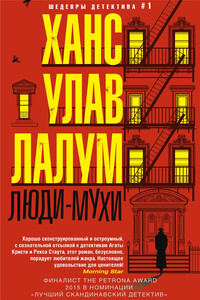
Убит бывший лидер норвежского Сопротивления и бывший член кабинета министров Харальд Олесен. Его тело обнаружено в запертой квартире, следов взлома нет, орудие убийства отсутствует. На звук выстрела к двери Олесена сбежались все соседи, но никого не увидели. Инспектор уголовного розыска Колбьёрн Кристиансен считает, что убийство, скорее всего, совершил кто-то из них. Более того, он полагает, что их показания лживы.
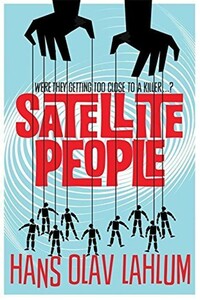
A gripping, evocative, and ingenious mystery which pays homage to Agatha Christie, Satellite People is the second Norwegian mystery in Hans Olav Lahlum's series. Oslo, 1969: When a wealthy man collapses and dies during a dinner party, Norwegian Police Inspector Kolbjorn Kristiansen, known as K2, is left shaken. For the victim, Magdalon Schelderup, a multimillionaire businessman and former resistance fighter, had contacted him only the day before, fearing for his life. It soon becomes clear that every one of Schelderup's 10 dinner guests is a suspect in the case.
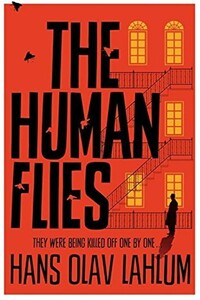
Oslo, 1968: ambitious young detective Inspector Kolbjorn Kristiansen is called to an apartment block, where a man has been found murdered. The victim, Harald Olesen, was a legendary hero of the Resistance during the Nazi occupation, and at first it is difficult to imagine who could have wanted him dead. But as Detective Inspector Kolbjorn Kristiansen (known as K2) begins to investigate, it seems clear that the murderer could only be one of Olesen's fellow tenants in the building. Soon, with the help of Patricia – a brilliant young woman confined to a wheelchair following a terrible accident – K2 will begin to untangle the web of lies surrounding Olesen's neighbors; each of whom, it seems, had their own reasons for wanting Olesen dead.
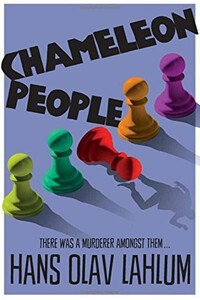
From the international bestselling author, Hans Olav Lahlum, comes Chameleon People, the fourth murder mystery in the K2 and Patricia series.1972. On a cold March morning the weekend peace is broken when a frantic young cyclist rings on Inspector Kolbjorn 'K2' Kristiansen's doorbell, desperate to speak to the detective.Compelled to help, K2 lets the boy inside, only to discover that he is being pursued by K2's colleagues in the Oslo police. A bloody knife is quickly found in the young man's pocket: a knife that matches the stab wounds of a politician murdered just a few streets away.The evidence seems clear-cut, and the arrest couldn't be easier.
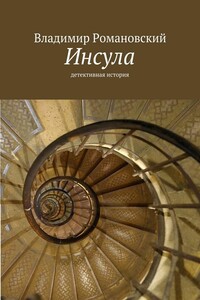
Детективная история, произошедшая в Санкт-Петербурге. Обычные люди в необычных обстоятельствах. Любовь, ненависть, жадность, драки и власть.
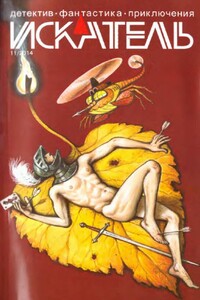
«ИСКАТЕЛЬ» — советский и российский литературный альманах. Издаётся с 1961 года. Публикует фантастические, приключенческие, детективные, военно-патриотические произведения, научно-популярные очерки и статьи. В 1961–1996 годах — литературное приложение к журналу «Вокруг света», с 1996 года — независимое издание.В 1961–1996 годах выходил шесть раз в год, в 1997–2002 годах — ежемесячно; с 2003 года выходит непериодически.Содержание:Анатолий Королев ПОЛИЦЕЙСКИЙ (повесть)Олег Быстров УКРАДИ МОЮ ЖИЗНЬ (окончание) (повесть)Владимир Лебедев ГОСТИ ИЗ НИОТКУДА.
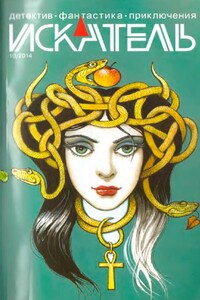
«ИСКАТЕЛЬ» — советский и российский литературный альманах. Издается с 1961 года. Публикует фантастические, приключенческие, детективные, военно-патриотические произведения, научно-популярные очерки и статьи. В 1961–1996 годах — литературное приложение к журналу «Вокруг света», с 1996 года — независимое издание.В 1961–1996 годах выходил шесть раз в год, в 1997–2002 годах — ежемесячно; с 2003 года выходит непериодически.Содержание:Олег Быстров УКРАДИ МОЮ ЖИЗНЬ (повесть);Петр Любестовский КЛЕТКА ДЛЯ НУТРИИ (повесть)
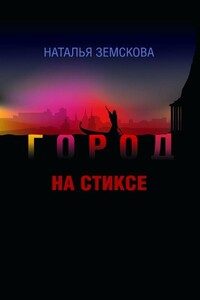
Наталья Земскова — журналист, театральный критик. В 2010 г. в издательстве «Астрель» (Санкт-Петербург) вышел её роман «Детородный возраст», который выдержал несколько переизданий. Остросюжетный роман «Город на Стиксе» — вторая книга писательницы. Молодая героиня, мечтает выйти замуж и уехать из забитого новостройками областного центра. Но вот у неё на глазах оживают тайны и легенды большого губернского города в центре России, судьбы талантливых людей, живущих рядом с нею. Роман «Город на Стиксе» — о выборе художника — провинция или столица? О том, чем рано или поздно приходится расплачиваться современному человеку, не верящему ни в Бога, ни в черта, а только в свой дар — за каждый неверный шаг.
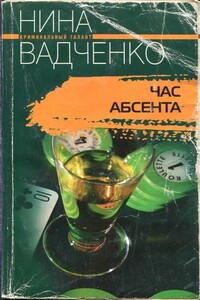
А ведь все так невинно начиналось! Четыре подружки коротали вечерок с бутылочкой «зеленого дьявола» и вели милую дамскую беседу о том… как бы им «грамотно» отправить на тот свет ненавистного шефа. Почему бы не помечтать о приятном в теплой дружеской компании? Все бы ничего, да только шефа вскоре действительно нашли мертвым, к тому же кто-то снял на видео посиделки четырех любительниц абсента. Впрочем, они и сами друг друга теперь подозревают. И распутать этот клубок противоречий по силам только их старой знакомой, неугомонной журналистке Инне Пономаренко…
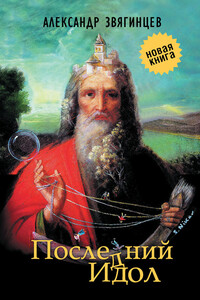
В сборник «Последний идол» вошли произведения Александра Звягинцева разных лет и разных жанров. Они объединены общей темой исторической памяти и личной ответственности человека в схватке со злом, которое порой предстает в самых неожиданных обличиях. Публикуются рассказы из циклов о делах следователей Багринцева и Северина, прокуроров Ольгина и Шип — уже известных читателям по сборнику Звягинцева «Кто-то из вас должен умереть!» (2012). Впервые увидит свет пьеса «Последний идол», а также цикл очерков писателя о событиях вокруг значительных фигур общественной и политической жизни России XIX–XX веков — от Петра Столыпина до Солженицына, от Александра Керенского до Льва Шейнина.